Are you thinking about selling your home in Chicago? If you’re like some Chicago homeowners, you’ll want to sell your home for as much as you can. Or you may just want to sell as quickly as possible, which means upping the odds that the deal closes.
How do you give yourself an advantage over other sellers in either category? Most importantly, you’ll need to understand the idiosyncrasies of the Chicago housing market — and what today’s Chicago homebuyer cares about.
For both, we turned to Wayne Beals, Managing Broker at EXIT Strategy Realty, and a Pearl Real Estate Network member specializing in sustainable and high-performing homes in the Chicago metro area.
First, the bad news for sellers: Overall, median home sale prices in the Chicago metro area have declined slightly in the latter part of 2023 versus the same period last year across all neighborhood types — urban, suburban, and rural. Now, the data is varied, and some communities like Oak Brook and Naperville are actually seeing climbing sale prices (25% and 7%, respectively).
One factor contributing to the drop in sale prices in some Chicago communities is current interest rates. Homebuyers — including those with existing homes to sell — aren’t interested in taking on a 7% mortgage rate for their next place.
“The industry is going through a mortgage lock-in,” says Beals. “And so a lot of homesellers in Chicago, particularly those who don't have existing mortgages, don’t really have a huge economic incentive to sell. They may choose to wait it out.”
If you’re unhappy with the median home price in your community, or hesitant to take on a higher mortgage rate in your next home, you might want to consider a longer-term strategy, says Beals. You can spend the time increasing your home’s value through strategic upgrades so that when interest rates do come down and buyers are more incentivized, your home has a built-in edge over the rest of the housing market in your particular Chicago community.
Related Post: 5 Ways to Upgrade Your Home and Its Appraisal Value
The smartest home investments start with an understanding of your environment and how it impacts the priorities of your potential buyer.
“You have to start with the Chicago climate,” says Beals. “It’s perceived to be an extreme climate: extremely hot and humid in the summer, extremely cold and dry in the winter. And those extremes affect the local population at a psychological level. Chicagoans tend to view their homes as a true ‘shelter’ from whatever’s happening outside. Comfort is a top priority, and not just in winter.”
Chicago’s extreme weather — or the perception of it — is exacerbated by the age of the housing stock. “This is largely old-build territory,” says Beals, “so you see a lot of houses with what used to be coal-burning features: boilers, furnaces, and what-have-yous in the basement. These features may have been adequate at the time the houses were built because energy was cheap and you could afford to shovel in as much coal as you needed to keep the house warm, but with increasing energy costs, that’s not the case.”
Putting it all together, Beals says, “We’re talking about an extreme climate in which there are old houses with significantly varying degrees of resistance to heat and cold.”
What does this mean for homeowners looking to add value before they sell in Chicago?
First, insulation upgrades and air sealing should be a top priority. You’ll want to arrange for a qualified professional to perform a formal energy audit (including a blower door test) to diagnose any leaks in your home that are essentially sucking out conditioned air (and your money). A trusted home contractor can help you make a choice as to the type and thickness of insulation you’ll need to achieve an appropriate R-value (degree of thermal resistance) for your home. They can also spot otherwise invisible gaps where air is entering or exiting your home and seal them up.
The great thing about this kind of home upgrade is that the return on your investment starts immediately. You should start seeing savings on your energy costs right away, well before you list your home.
An added benefit of sealing up your home is better indoor air quality (IAQ). IAQ is closely tied to respiratory health, and considering 16% percent of families in Chicago have a child or children with asthma, better indoor air should be a top priority for homebuyers. An indoor air quality monitor can be a great way to demonstrate improved air quality in your home. Between that and the savings on your energy bills, you’ll have some strong data points for both appraisers and homebuyers (just make sure you get your upgrades independently certified).
Related Post: Green Door Guide to Insulation and Air Sealing Rebates and Tax Credits
Assuming you aren’t under enormous time pressure to sell, it’s probably not too late to significantly increase your home’s resale value through other high-impact performance upgrades that come in at a fairly low price point.
For example, 2020 Chicago home sales data suggests that the following two upgrades, both of which can be done to improve home energy efficiency, may be particularly smart bets for area homeowners:
Garage door replacement: 80.1% of costs recouped on average by home sellers at time of sale
Window replacements: 71.5% of costs recouped on average
Already taken steps in one or more of the above areas, or own a home that came with measures like these already in place? You still have options.
Related Post: Green Door Guide to Window & Door Rebates and Tax Credits
Perhaps the best one — again, provided you have a more flexible timeline for selling — is to explore the benefits of adding photovoltaic (PV) solar panels to your home. True, this is an upgrade that requires upfront financial investment, but it comes with a reliable and extensively studied timeline to ROI — typically within 10 years — and depending on the cost of fossil fuel heating in your area, you could see reductions of 40-70% in your electric bills over the near term.
That’s a key consideration given that nearly one quarter of Chicago households were unable to pay their energy bills in full on one or more occasions last year. Plus, while your under-insulated or unsealed house might have you believe differently, Chicago’s climate is in reality less extreme and much sunnier than you may realize. In fact, Illinois is on par with Florida from the standpoint of home solar suitability, and Chicago itself is ranked second for overall solar potential out of all Midwestern cities.
Related Post: Green Door Guide to Solar Energy Rebates and Tax Credits
There’s plenty of home value to be added to your Chicago home before you list. But if you’re looking to shorten your timeline, then it’s critically important you look for ways to mitigate some of the upfront cost of these home upgrades.
One major source of savings is the Inflation Reduction Act. Tax credits associated with home energy improvements are already available and can significantly lower your tax liability, as long as you have proper documentation for your 2023 home upgrades. Additionally, rebates on many of the improvements we’ve mentioned above are expected to be released in 2024 on a state-by-state basis, which can cut additional thousands from your project costs – and that doesn’t even count rebates that may already be available through your utility program.
While we won’t know what Illinois’ rebates program looks like until next year most likely, it pays to be prepared in order to stack and maximize savings. One important step is to document every home upgrade you make and get the performance and energy-efficiency certified by a third party. Besides the fact that third-party certification helps capture and quantify the “invisible” investments you’ve made to your home, it’s also a requirement to unlock the rebates in the upcoming Homeowner Managing Energy Savings (HOMES) rebate program.
Related Post: Everything You Need to Know About Home Energy Rebates and Tax Credits
Research shows that properly marketed Pearl Certified homes sell for a roughly 5% premium on average. That’s because Pearl Certification, as a third-party certifier, looks at each of your home’s performance assets and relays important information to appraisers about how it impacts your home’s value. It also communicates the everyday impact those upgrades have on the energy costs, comfort, and health of your home to buyers.
And, as Beals points out, certification can shorten the time it takes to sell your home. If your priority is selling your home quickly versus selling it for maximum resale value, having a certification can help make that first offer you accept be the last one.
“One of the nicest things about certifying home performance upgrades in Chicago is that it can increase your deal stability,” he says. “Now, you're clearly disclosing to a potential buyer, ‘Hey, this is the condition of this house,’ and there are fewer surprises.”
Related Post: Selling or Refinancing Your High-Performing Home: Top 5 Tips for Getting the Value You Deserve
Hopefully, this has been an insightful deep-dive for anyone interested in the high-performing home market in the land of the deep-dish pizza. To briefly recap a few key points:
As the Chicago real estate market continues to be tight, and the macroeconomic environment less than ideal for buyers and sellers alike, it might make sense to prioritize home performance upgrades in the interim.
Insulation upgrades are likely the highest ROI upgrade for Chicago area homeowners, but there’s no shortage of viable options that can deliver both short- and long-term value.
Certification is the final piece of the puzzle for connecting home performance upgrades to resale value, especially in the Chicago real estate market.
Not sure where to turn to connect with qualified real estate agents who specialize in marketing and selling high-performing home features in your local area? Consulting with a Pearl Real Estate Network member like Wayne Beals is a good place to start. Experts like Beals can help you maximize the value of your home performance investments, show you simple resale best practices, market your Pearl Certified home, and a whole lot more.
Related Post: Choosing a Qualified Realtor for Your High-Performing Home
If you want to get more actionable intelligence, insights, and home-listing advice related to the real estate market in Chicago — or any other U.S. city — download Green Door. The free app from Pearl Certification is a one-stop shop for adding value to your home. It can enhance your home-selling journey at every stage and help ensure you see maximum ROI on all of your home performance upgrades.


Pearl is transforming the housing market by scoring, verifying, and certifying the performance of homes across the country.